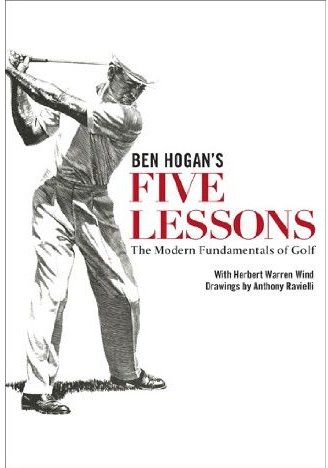 The building blocks of winning golf — from one of the masters of the game.Ben Hogan, one of the greatest golfers in the history of the sport, believed that any golfer with average coordination can learn to break 80 — if one applies oneself patiently and intelligently. With the techniques revealed in this classic book, you can learn how to make your game work from tee to green, step-by-step and stroke by stroke.
The building blocks of winning golf — from one of the masters of the game.Ben Hogan, one of the greatest golfers in the history of the sport, believed that any golfer with average coordination can learn to break 80 — if one applies oneself patiently and intelligently. With the techniques revealed in this classic book, you can learn how to make your game work from tee to green, step-by-step and stroke by stroke.
In each chapter, a different tested fundamental is explained and demonstrated with clear illustrations — as though Hogan were giving you a personal lesson with the same skill and precision that made him a legend. Whether you’re a novice player or an experienced pro, Ben Hogan’s Five Lessons is a must-have reference for anyone who knows that fundamentals are where champions begin.
Ben Hogan’s premise in this 1957 classic is driven home in bold letters: “THE AVERAGE GOLFER IS ENTIRELY CAPABLE OF BUILDING A REPEATING SWING AND BREAKING 80.” Religions are founded on less, and Hogan’s detailed analyses and illustrated demonstrations of grip, stance, posture, and the two basic components of the swing make up a sacred book. Though its very simplicity seems dated, this is the tome of technique that should serve as the foundation of every golf library. (source)
About the authors
Ben Hogan won 63 PGA Tour tournaments and 71 overall as a professional golfer in his storied career. These include 4 U.S. Opens, 2 Masters, 2 PGA Championships and a British Open victory in the only one he ever entered. He was also Player of the year 4 times and never lost a Ryder Cup match.
Herbert Warren Wind (August 11, 1916 – May 30, 2005) was an American golfer and golf writer, who also wrote on other subjects.
Anthony (Tony) Ravielli (1 Jul 1916–9 Jan 1997) was born in Italian Harlem. He wrote and/or illustrated books and articles on anatomy, evolution, earth science, general relativity, mathematical puzzles and science experiments. But what he would be best remembered for were his books and articles on sports instruction. He had a unique ability to deconstruct the technique, whether it be fly casting or the golf stroke, and illustrate it in a way that the average reader could clearly understand.
Related posts
Golf Books #25 (The Life and Work of Dr. Alister MacKenzie)
on Tuesday 12, AprilConsidering the fact that he was one of the greatest golf course architects in...
Golf Movies #8 (Tin Cup – 1996)
on Tuesday 6, MarchKevin Costner and Rene Russo star in this hopelessly romantic story of a out-of-date...
